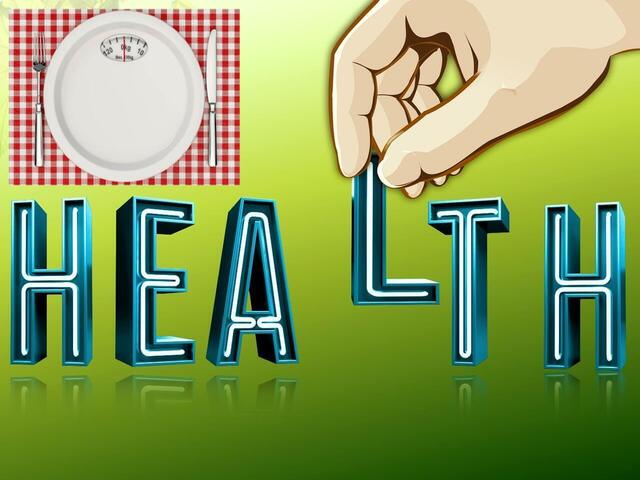The Benefits Of Fasting For HealingWe are particularly well-adapted to prolonged fasting. Evolving in a context of scarcity is believed to have shaped our exceptional ability to store large amounts of calories when food is available. Of course, now our ability to easily pack on pounds is leading to modern diseases like obesity and type 2-diabetes, but without the ability to store so much body fat, we may not have made it to tell the tale. And it’s not just asteroids millions of years ago. All of Upper Egypt was dying of hunger, reads an inscription on an Egyptian tomb from about 4,000 years ago, "to such a degree that everyone had come to eating his children…" Or, just hundreds of years ago: “Parents killed their children and children killed parents” and ate them, and "the bodies of executed criminals were eagerly snatched from the gallows." - Wiping out as many as two-thirds of the population of Italy and one-third of the population of Paris. So, we don’t have to go back to ancient history. Even the most secure and affluent populations of today need only trace their history back a short distance. For example, there have been nearly 200 famines in Britain over the last 2,000 years. Now, we tend to be suffering from too much food, which carries its own problems, but might there be any negative consequences to not ever starving? This was a question raised 50 years ago. I mean, if our physiology is so well-tuned to periodic starvation, maybe by eliminating that we may be doing harm to our overall well-being? We just didn’t know. The lack of research in the area of starvation was attributed to the difficulty of securing willing human subjects. So, what little researchers had came from unwilling subjects; for example in cases like, the Irish Republican prisoners starving themselves to death after up to 73 days on hunger strike. But starvation isn’t necessarily the same as fasting; an issue raised in medical journals over a century ago. Starvation is normally a forced, mentally stressful, and chronic condition, whereas therapeutic fasting is voluntary, limited in duration, and usually practiced by people who start out with adequate nutrition. Therapeutic fasting? Where Did The Idea Of Therapeutic Fasting Come From?The idea of fasting for medical purposes may have originally arose out of the observation that when people get acutely ill they tend to lose their appetite; so, maybe there’s something in the body’s wisdom to stopping eating. That’s presumably where the whole “starve a fever” folklore came from. There was this sense that fasting affords physiological rest for the body, not just for the digestive tract, but throughout, allowing the body to concentrate on healing. It was evidently an open secret that veterinarians used to hospitalize dogs only to fast them back to health; and so maybe, the theory went, it might work for people too. Beyond just freeing up all the resources that would normally be used for nutrient digestion and storage, there’s this concept that during fasting, our cells switch over to some sort of protection mode. Why would fasting reduce free radical damage and inflammation and bolster cellular protection? It’s the "that-which-doesn’t-kill-us-makes-us-stronger" concept known as hormesis. So, that’s kind of the opposite of the let-the-body-rest theory. It’s more like let-the-body-stress. The stress of fasting may steel the body against other stresses coming your way. This was demonstrated perhaps most starkly in a set of cringeworthy experiments in which mice were blasted with Hiroshima-level gamma radiation sufficient to kill 50 percent within two weeks. But, of the mice that had first been intermittently fasted for six weeks before, not a single one died. It’s this kind of dramatic data that led to extraordinary claims, like therapeutic fasting could drive half of all doctors out of business. But you don’t know, until you put it to the test. What Fasting Means To Different People?One difficulty with fasting research is: what do you mean by fasting? For example when a physician in United States thinks fasting, he thinks of water-only fasting, but in Europe they tend to practice so-called modified fasting, or Buchinger fasting, which is more like a very low-calorie juice fasting with some vegetable broth. Some forms of fasting may not even cut calories at all. Ramadan fasting is when devout Muslims abstain from food and drink from sunrise to sunset, yet interestingly, they end up eating the same amount, or even more food, overall. The largest study on fasting to date was published in 2019. More than a thousand individuals were put through a modified fast, cutting intake down to about 10 cups of water, a cup of fruit juice, and a cup of vegetable soup a day. The participants self-reported improvements in physical and emotional well-being, along with a surprising lack of hunger. And the vast majority of those who came in with a pre-existing health complaint reported feeling better. About a thousand folks fasted for a week on the same juice and vegetable soup regimen versus those put on a normal calorie vegetarian diet the whole time. Both experienced significant increases in both physical and mental quality of life, and interestingly, there was no significant difference between the groups. In terms of their major health complaints—rheumatoid arthritis, chronic pain syndromes like osteoarthritis, fibromyalgia, and back pain, inflammatory and irritable bowel disease, chronic pulmonary diseases, and migraine and chronic tension-type headaches, the fasting group appeared to have an edge, but both groups did good, with about 80 percent reporting improvements in their condition. ConclusionPrincipally, the experience of fasting may support motivation for lifestyle change. "Most fasters experience clarity of mind and feel a 'letting go' of past actions and experiences, and thus may develop a more positive attitude toward the future." As a consensus panel of fasting experts concluded, "Nutritional therapy is a vital and integral component of fasting. After the fasting therapy and refeeding period, nutrition should follow the recommendations… of a plant-based whole-food diet…," which helps people to get healthier and stay healthy. Note: Fasting is not for everyone, especially children, pregnant women and people with certain medical illness. Individuals with pre-existing conditions need to consult a dietitian or nutritionist to ensure that their nutritional needs are being met. Fasting - God’s Secret Remedy To Help Healing Your Body And Mind Related Links: Sources
0 Comments
Leave a Reply. |
Halal In Japan
|
|



 RSS Feed
RSS Feed





